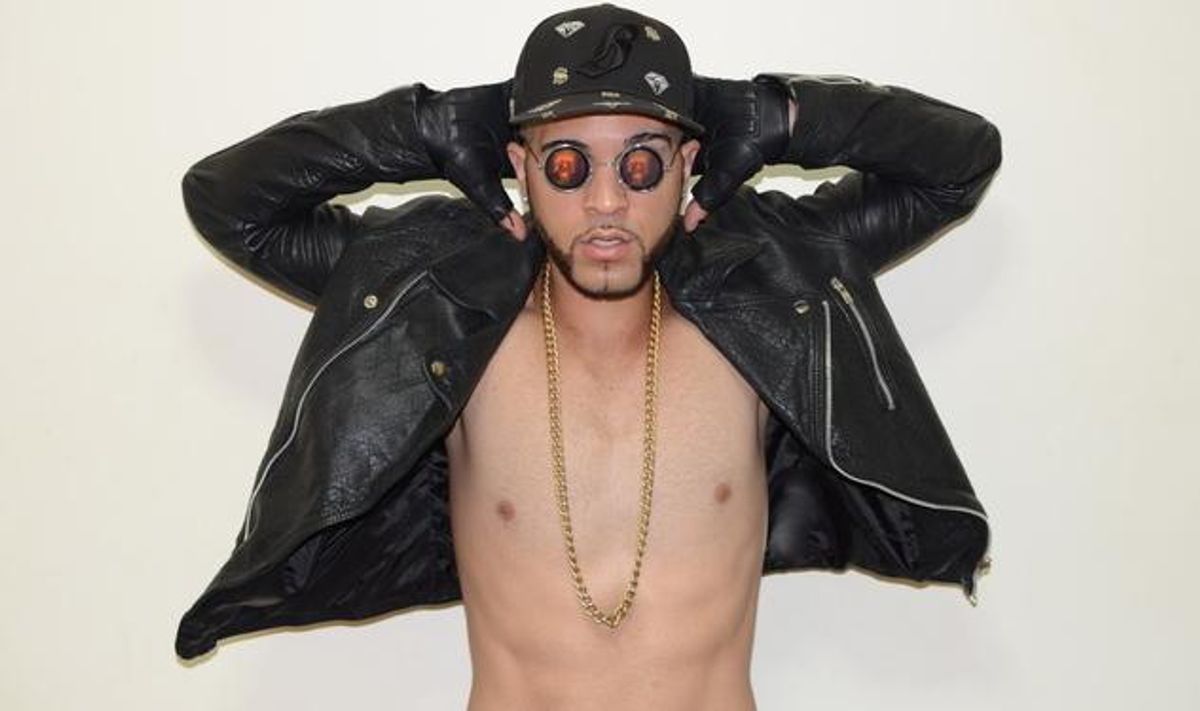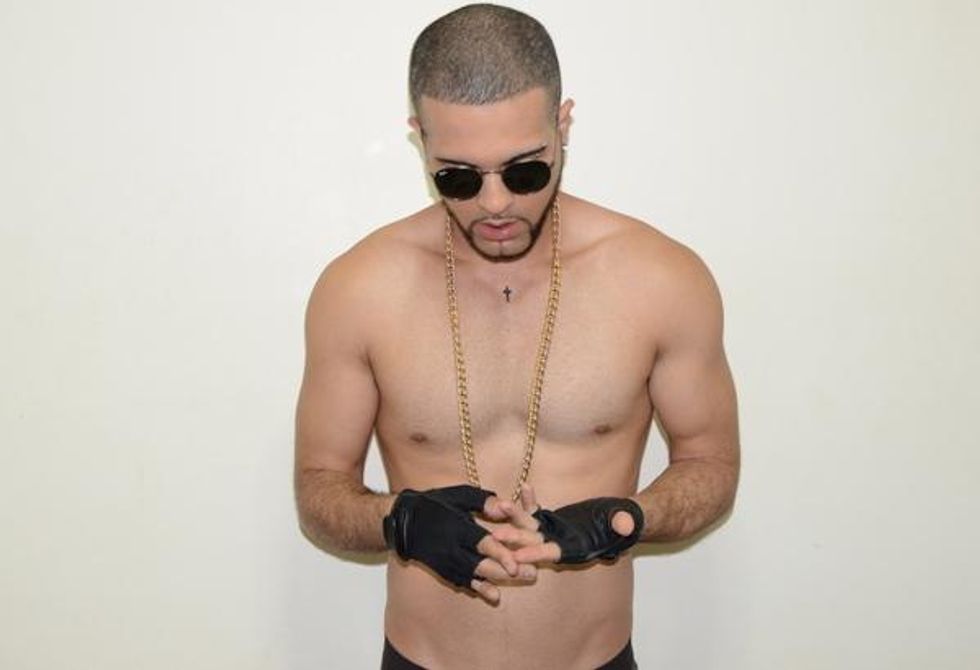News & Opinion
The Limited Tropes of Gayness

Pop musician Chris Cali on going against the grain and embracing male pronouns.
June 11 2013 2:45 PM EST
February 05 2015 9:27 PM EST
By continuing to use our site, you agree to our Private Policy and Terms of Use.

It still feels odd to sing love songs to a male pronoun, which is probably why most of my material veers toward the generalized "you." A lifetime of social conditioning is serious business.
Nearly ten years ago, when I began writing and recording my own music, it never crossed my mind that I should attempt to be an "out" gay artist. The only examples I had of successful musicians who were openly gay were Elton John, Boy George, George Michael and Melissa Etheridge, who had all come out after years of success selling thousands of records, touring all over the world promoting music that was either closeted or unspecific. They were also all white. The majority of my gay male friends, the majority of whom also happened to be white, never hid their disdain for the idea that I would make music singing about fictional relationships with women.
At the time, I argued that an artist like me simply didn't exist and I would encounter endless resistance. I didn't want to box myself into a niche and I didn't want to make music to be political. All I wanted was to make music people would like and the only references I had were staunchly heterosexual. The industry I wanted to break into was built on selling heterosexual sex appeal. In my mind there was no possibility for a multi-ethnic gay male R&B/Pop singer to break into the mainstream or see his music on MTV or hear his songs on the radio without being used to represent some "other."
If I were out, I could never just be "Chris Cali." I would always be "gay artist Chris Cali." My gayness would instantly alienate people who otherwise may have actually liked my material. My persona would forever be a political statement. The glaring unfairness of that gnawed at me. As more openly gay artists began to materialize on the fringes of popular culture and even some within the mainstream, their sexuality was an inextricable part of their work and it seemed limiting. And I still didn't see myself represented. I'm not a white glam rock singer with make up and sequins and leather pants. I'm not a black urban rapper bravely defying gender and racial stereotypes. I'm not a drag queen with catchy house music serving body and "fish." I never had a gimmick or an angle, so the limited tropes of gayness now so prevalent and mainstream didn't suit me. In the assimilation of my own counter-culture, I still didn't seem to fit.

Something changed when I got the opportunity to shoot my first music video. The video is for a house inspired dance track called "Never Let Me Go," perhaps one of the simplest songs I've ever written. My approach to my own music, while aiming to be marketable and relatable, is always cathartic: Every song exorcises my demons. And this song expresses a very simple, very universal longing to be loved. There's nothing inherently gay about the lyrics or the production, but when I sat down to conceptualize the video, there was never a doubt in my mind that I wanted to depict my relationship with a man.
Perhaps something about the visual medium of a music video in which I'd be more or less playing myself had something to do with it. Or perhaps it's because the song expresses something so personal it would have been an affront to my very core to portray anything but my absolute truth. And just like that, the years of contemplating whether or not I should take that fateful step just evaporated as my lips touched his on camera.
After releasing my video and trying to promote it to press outlets, I felt the pangs of disappointment when it wasn't picked up and I second-guessed my decision to portray physical sexuality between myself and another man. Other videos by openly gay artists picked up major press outlets didn't feature a man kissing another man the way mine did. I was worried I had created something too polarizing and I considered whether or not I should tone it down in the future.
But in what I can only describe serendipitous, just as my video premiered, anti-gay violence has been on the rise in New York City, a place where I've never once felt uncomfortable being as openly gay as I want to be. As I stood at the rally for Mark Carson, who was fatally shot in the face for appearing too visibly gay in public, I suddenly felt a very urgent sense of what is right and what is wrong. I felt a palpable anger. It was a moment of realization. I have a right to authentically present myself, no matter how it's received -- and not just in terms of my sexuality, but also my humanity. I am not a stereotype or a gimmick or a caricature. I'm just an artist who happens to be gay. And no matter what that means for my career, I will never ever represent myself as anything but exactly who and what I am.
For more Chris Cali, check out his video for Never Let Me Go and check out some of his tracks on SoundCloud. And of course you can follow him on Twitter, Facebook and Instagram.
Want more breaking equality news & trending entertainment stories?
Check out our NEW 24/7 streaming service: the Advocate Channel!
Download the Advocate Channel App for your mobile phone and your favorite streaming device!